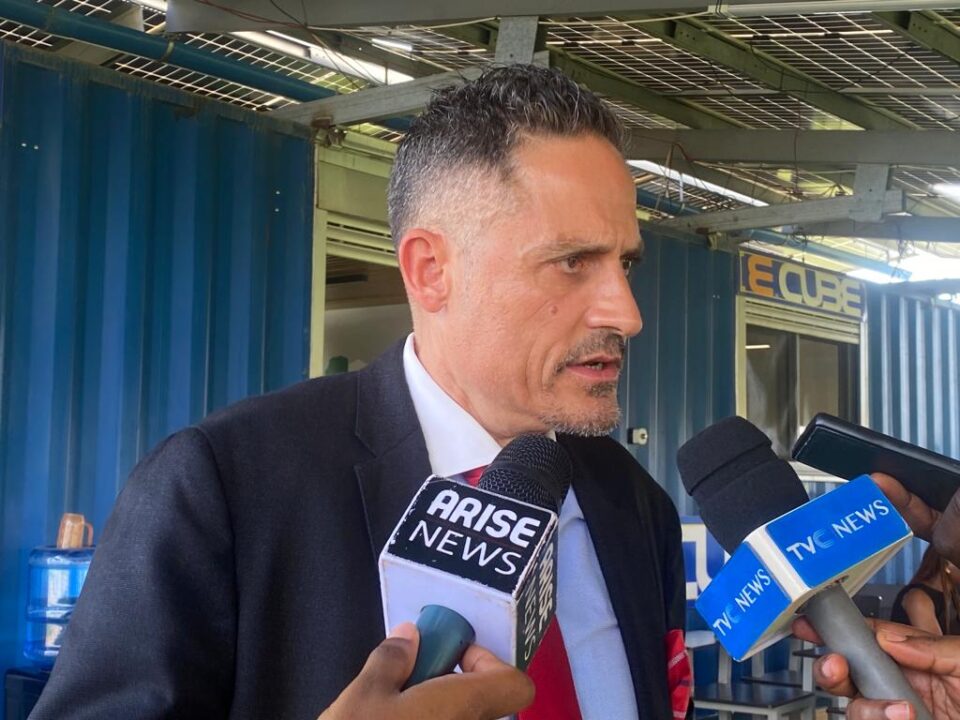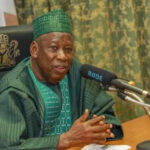*As participants urge UN, Nigerian government to crystallise action plan in rural communities
The Centre for Media and Peace Initiatives (CMPI) has called for massive awareness campaigns across the country to sensitize Nigerians on sustainable practices to arrest growing threats of climate change.
CMPI is a non-profit organisation that seeks to promote conflict-resolving media practices and ensure better policy around the world.
The President of CMPI, Dr. Uchenna Ekwo, made the call at the African Youth Leaders Dialogue on Climate Change, organised by ECube, a non-governmental organisation, in collaboration with the CMPI and the United Nations on Monday in Abuja.
This was as participants also appealed to the United Nations and the Nigerian government to jointly implement the suggestions made at the programme, particularly in the rural areas.
Ekwo said the fight against climate change issues had become imperative for community stakeholders to constantly dialogue as a tool to sensitize people about the dangers of climate change, in order to tackle issues relating to it.
He said it was very important that we have conversations and begin to think how to deal with challenges that climate change poses on us, which he noted could be catastrophic.
He said: “For us at CMPI, we try to see the connection between peace and conflict as well, because they are all interrelated.
“These problems do not have particular area that shows their correlation. However, when we have a climate change induced challenge, such affects us in one way or another. Therefore the need for awareness creation, to encourage people to hold their leaders accountable.
“Sometimes you see conspiracy theories about climate change as issues related to politics or religion, but the truth is that scientifically climate change is real.
“So, there is the need for awareness creation to encourage people to always imbibe best practices and sustainable approach to mitigate climate change.”
Speaking virtually at the event, Bitsat Yohamnes-Kassahun, Lead, Energy and Climate, UN Office of the Special Adviser on Africa, emphasized the need for holistic approach to tackle climate change.
She said people must constantly dialogue to find solution to challenges associated with climate change, stressing that “if we do not care, this is going to be untenable.”
Yohamnes-Kassahun added: “Here in New York government has set up cooling devices against harsh weather condition, but we do not have most of that in many cities globally.
“We have started to experience extreme torrential rainfall and flood in places like New York that infrastructures and homes are not equipped for.
“So, what you have is flooding, people are getting very nervous during flooding, but the local authorities here are overhauling structures to mitigate that.
“When we come to Africa in this context how prepared are we? When we talk about heatwave, we consider the impacts on water shortage and lots more.
“There is the need for awareness creation through different reporting method about the dangers of climate change, to bring about lasting solution to the problem such poses.”
In separate interview, Ilan Lugassy, Country Manager and Managing-Director of ECube, said his organisation had designed measures aimed at encouraging public private partnership to tackle climate change.
He said: “We have been working closely with relevant agencies to promote the awareness,” noting that: “Many government institutions have been here like the Federal Ministry of Power, Rural Electrification Agency, Ministry of Agriculture and other community-based organisations, and every stakeholder has been enthusiastic about the ECube idea.
“The solution to climate change is not just about electrification, our ECube system has been built to provide electricity and connectivity, to provide basic amenities for communities.
“By this, we are capable of providing services to various communities, which is a game changer in the fights against climate change. “
He said that the dialogue was put together to promote best practices in providing support for rural-urban areas with no access to electricity to mitigate climate change actions.
Also contributing, some of the participants: Chief Malachy Uzendu (Journalist); Ebube Chidozie, Daniel Emeka, Chukwuemeka Mougbo and Vivian Eziokwu (all university undergraduates), appealed to the organisers ensure that the issues raised are given life in the Nigerian communities.
Uzendu in particular, reminded of several programmes, even sponsored by international agencies, that never got into practical reality, emphasising that ECube’s incubation projects could transform Nigeria’s rural communities and change the life style of Nigerians.
“The issue of climate change is the live wire of our tomorrow, but these need to be practicalities in several communities.
“We have been enjoying light, fans, and other amenities powered by the solar systems provided by the ECube here. We have seen the water project, the Green Farms experimental farms, several agro-based equipments fabricated and put to use here, but we appeal to the UN and other international agencies to see in these young persons, the contact for crystallising those lofty ideas practically in our communities,” he said.
Uzendu who noted that harnessing solar and other green energies have become more important now that Nigeria is facing economic crises brought about by the dependence on crude oil resources, pointed out that the huge cost implications of getting these done can only remain Ana academic exercise except the UN committed to making such happen.



